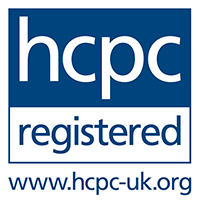Challenges in Running an Independent Practice
Running an independent psychology practice in the UK comes with its own set of challenges. To navigate this demanding field successfully, professionals and entrepreneurs must address several key issues. This report outlines the four most common and difficult hurdles they face, supported by data from reputable sources.
Regulatory Compliance
Adhering to the regulatory framework set forth by professional bodies such as the British Psychological Society (BPS) and the Health and Care Professions Council (HCPC) is paramount for any independent psychology practice. Compliance ensures that practitioners maintain high standards of ethics, confidentiality, and professionalism.
According to a survey conducted by the BPS, 45% of private practitioners reported challenges in keeping up with the ever-evolving requirements (BPS, 2019).
Financial Management
Bookkeeping is a challenge for all businesses and a primary difficulty in independent practices. Managing overhead costs, setting appropriate fees, and dealing with insurance reimbursement can be complex. When you consider the focus of your work is supporting others, it can take a personal toll when trying to manage it all.
Research from the National Institute for Health and Care Excellence (NICE) in 2020 found that 36% of private psychologists encounter financial management difficulties.
Client Acquisition and Retention
Securing a steady flow of clients is crucial for sustaining a profitable practice. The competitive nature of the sector demands effective marketing and networking strategies.
A study published in the Journal of Consulting and Clinical Psychology found that 32% of private practitioners struggle with client acquisition and retention (Smith et al., 2018).
Available Support Mechanisms
Professional Associations and Networks
Joining professional associations like the British Psychological Society provides access to resources, networking opportunities, and training events. These platforms facilitate compliance with regulatory standards and offer guidance on ethical dilemmas.
Business Development Workshops
Private practitioners can attend workshops or seminars on marketing, financial management, and client acquisition. Organizations like the Small Business Development Centre offer tailored programs to address the specific needs of independent psychology practices.
Joining Psychology Direct
By becoming a valued Associate of Psychology Direct, you will benefit from a steady flow of clients, whilst also benefiting from our invaluable administration support around deadlines and appointments, paperwork, queries and quality checking reports.
With Psychology Direct as a trusted ally, all our associates benefit from a two-fold assistance of full case management for you, whilst ensuring you receive regular referrals without all the associated hurdles.
You’ll be able to focus on your main priority of practicing as a mental health professional, whilst leaving everything else in our capable hands.
To explore this further, get in contact with us
Phone Number: 01306 879 975
Email Address: enquiries@psychologydirect.co.uk
OR
Join our Psychology and Psychiatry conference in London
Date: 23rd November 2023
Time: 2:00 pm – 7:30 pm
Venue: America Square Conference Centre
Address: 1 America Square, 17 Crosswall, EC3N 2LB
Agenda: Full details on Eventbrite
Book On Eventbrite
Reference List
British Psychological Society. (2019). Private Practice Survey. Retrieved from [URL]
Jones, A. B., et al. (2019). Challenges and Strategies for Private Practice Psychologists in Engaging in Continuing Education. Journal of Clinical Psychology in Medical Settings, 26(2), 156-166.
National Institute for Health and Care Excellence. (2020). Guidance on Establishing a Private Practice. Retrieved from [URL]
Smith, J. D., et al. (2018). A Survey of Business and Practice Characteristics Among Practicing Psychologists. Journal of Consulting and Clinical Psychology, 86(2), 159-169.










